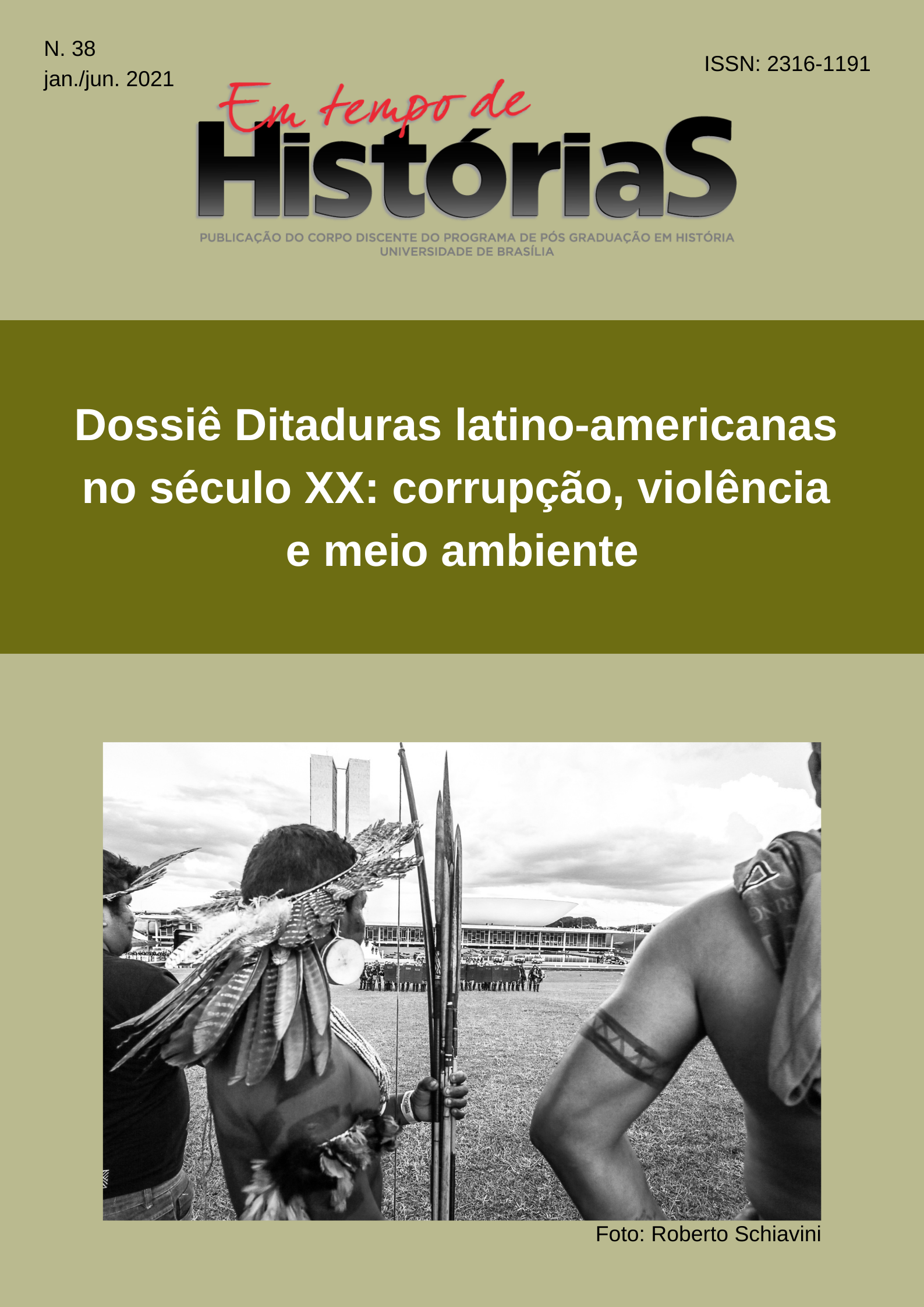Eugenics in H.G. Wells’ The Time Machine
DOI:
https://doi.org/10.26512/emtempos.v1i38.36456Keywords:
Dystopia. Science Fiction. Eugenics.Abstract
The end of the 19th century was a period of contradiction between intellectual optimism regarding the teleological progress of history and a social reality of inequality and urban misery. The writer H.G. Wells positioned himself between the two sides, being a biologist and an activist concerned with the immense difficulties faced by the working class. In his book The Time Machine (1895), these concerns are evident when the protagonist meets the society of the future: a dystopia where the evolution of the human species, left to its own devices, leads to the radicalization of inequality in two different species: the eloi and the morlocks. Conversing with utopian literature, the book serves as a vehicle for the author to criticize his historical context and, then influenced by Francis Galton and Thomas Huxley, reveal what he saw as a solution: the conscious control of the evolution process through eugenics.
Downloads
References
WELLS, Herbert George. A Máquina do Tempo. Coleção Mundos da Ficção Científica, No. 23. Francisco Alves: Rio de Janeiro, 1991.
DEL CONT, Valdeir. Francis Galton: eugenia e hereditariedade. Scientiae Studia. São Paulo , v. 6, n. 2, p. 201-218, Abril/Junho 2008. Disponível em: <http://www.scielo.br/scielo.php?script=sci_arttext&pid=S1678-31662008000200004&lng=en&nrm=iso> Acessado em: 27/10/ 2020.
EISENSTEIN, Alex. The Time Machine and the End of Man. Science Fiction Studies. N. 9, V. 3, Part 2. July 1976. Disponível em: <http://www.depauw.edu/sfs/backissues/9/eisenstein9art.htm> Acessado em 03/07/2018.
FEENBERG, Andrew. Critical Theory of Technology: An Overview. Tailoring Biotechnologies. Vol. 1, Issue 1, Winter 2005, pp: 47-64. Disponível em: <https://www.sfu.ca/~andrewf/books/critbio.pdf>. Acessado em: 13/10/2017
FURLANETTO, Elton Luiz Aliandro. O Futuro como ruptura: a crítica materialista-histórica de ficção científica. Remate de Males. V. 32, 2013.
GAY, Peter. Represálias selvagens: realidade e ficção na literatura de Charles Dickens, Gustave Flaubert e Thomas Mann. São Paulo: Companhia das Letras, 2010.
HOBSBAWN, Eric. Ciência, Religião, Ideologia. A Era do Capital. São Paulo: Paz e Terra. 2001.
PARTINGTON, John. H.G. Wells’s Eugenic Thinking 1892-1944. Utopian Studies. 14:1 (2003), 74-81. Disponível em: <http://www.academia.edu/1693185/H.G._Wells_s_Eugenic_Thinking_1892-1994.htm> Acessado em: 31/07/2015.
POLIAKOV, Léon. O mito ariano: ensaio sobre as fontes do racismo e dos nacionalismos. São Paulo: Perspectiva, 1974
TAUNTON, Matthew. H. G. Wells’s Politics. Discovering Literature: Romantics and Victorians. The British Library. 2014. Disponível em: <http://www.bl.uk/romantics-and-victorians/articles/h-g-wells-politics> Acessado em: 01/07/2015
TAUNTON, Matthew. Class in The Time Machine. Discovering Literature: Romantics and Victorians. The British Library. 2013. Disponível em:<http://www.bl.uk/romantics-and-victorians/articles/class-in-the-time-machine> Acessado em: 03/07/2015
VASCONCELOS, José Antonio. A utopia urbana de Edward Bellamy. Dimensões, vol. 30, 2013, p. 251.
Downloads
Published
How to Cite
Issue
Section
License
Copyright (c) 2021 Em Tempo de Histórias

This work is licensed under a Creative Commons Attribution-NonCommercial 4.0 International License.
Autores que publicam nesta revista concordam com os seguintes termos:
- Autores mantém os direitos autorais e concedem à revista o direito de primeira publicação, sendo o trabalho simultaneamente licenciado sob a Creative Commons Attribution License , licença que permite que outros remixem, adaptem e criem a partir do seu trabalho para fins não comerciais, e embora os novos trabalhos tenham de lhe atribuir o devido crédito e não possam ser usados para fins comerciais, os usuários não têm de licenciar esses trabalhos derivados sob os mesmos termos.
- Autores têm autorização para assumir contratos adicionais separadamente, para distribuição não-exclusiva da versão do trabalho publicada nesta revista (ex.: publicar em repositório institucional ou como capítulo de livro), com reconhecimento de autoria e publicação inicial nesta revista.
- Autores têm permissão e são estimulados a publicar e distribuir seu trabalho online (ex.: em repositórios institucionais ou na sua página pessoal) a qualquer ponto antes ou durante o processo editorial, já que isso pode gerar alterações produtivas, bem como aumentar o impacto e a citação do trabalho publicado (Veja O Efeito do Acesso Livre).













